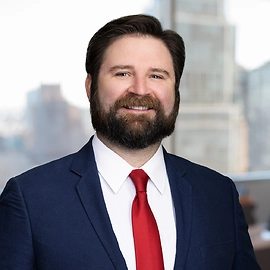 On January 12, 2015, the California Supreme Court issued its decision in Mendiola v. CPS Security Solutions, Inc. While it will have no impact upon most employers, it is a decision that will have significant impact on some. It may well lead to the filings of class action lawsuits against some employers alleging that they did not pay employees for sleep time – lawsuits those employers now may have great difficulty defending.
On January 12, 2015, the California Supreme Court issued its decision in Mendiola v. CPS Security Solutions, Inc. While it will have no impact upon most employers, it is a decision that will have significant impact on some. It may well lead to the filings of class action lawsuits against some employers alleging that they did not pay employees for sleep time – lawsuits those employers now may have great difficulty defending.
To the surprise of some, the Court concluded that security guards who are assigned 24-hour shifts, but sleep 8 of those hours, must be compensated for the entire 24 hours. The Court reached this conclusion despite the fact that the employees agreed in advance that such sleep time should be excluded from their hours worked – and despite the fact that a prior Court of Appeal decision had approved such agreements several years ago.
The case involves interpretation of California Industrial Welfare Commission (“IWC”) Wage Order 4, which governs employees in professional, technical, clerical, mechanical, and similar occupations. (The IWC has issued different Wage Orders for different industries.)
Guards working 24-hour shifts for CPS had agreed that their 8 hours of sleep time would not be compensated. The issue was then raised in two putative class action lawsuits. Reversing the appellate decision on this issue, the California Supreme Court has held that the guards’ “on-call hours constituted compensable hours worked and, further, that CPS could not exclude ‘sleep time’ from plaintiffs’ 24-hour shifts . . . .”
Addressing whether “on-call” time is compensable, the Court reiterated the factors to which other courts have looked : “(1) whether there was an on-premises living requirement; (2) whether there were excessive geographical restrictions on employee’s movements; (3) whether the frequency of calls was unduly restrictive; (4) whether a fixed time limit for response was unduly restrictive; (5) whether the on-call employee could easily trade on-call responsibilities; (6) whether use of a pager could ease restrictions; and (7) whether the employee had actually engaged in personal activities during call-in time.” Additionally, the courts have also considered whether the time “is spent primarily for the benefit of the employer and its business.” Applying these factors, the Court determined that the guards should have been compensated for their on-call time.
The Court then concluded that sleep time could not be excluded from hours worked – even by agreement. Such agreements had generally been permitted since at least April 2011 when the Court of Appeal issued its decision in Seymore v. Metson Marine, Inc. The Seymore Court held that “California law authorizes employers to enter into an agreement with their 24-hour employees to exclude from compensation eight hours of sleep time in each 24-hour period,” following applicable federal regulations and a prior California appellate opinion in Monzon v. Schaefer Ambulance Service, Inc. Importantly, the Monzon Court found that such an exclusion was permissible under Wage Order 9, governing ambulance drivers and attendants. It did not address Wage Order 4, the one at issue in Mendiola.
The Mendiola Court disapproved of Seymore “as an improper extension of Monzon.” Moreover, noting the differences in the various Wage Orders, the Court explained, “Unlike Monzon, which at least could point to some evidence of the IWC’s intent concerning ambulance drivers and attendants, Seymore identified no such indication, much less convincing evidence, that the IWC intended to permit the exclusion of sleep time from compensable hours worked for all employees working 24-hour shifts.” The Court looked at Wage Order 4, finding that it contained no signal that the IWC intended to adopt a sleep time exclusion, while other wage orders – specifically, Wage Orders 5 and 9 – had done so. And because there was no evidence that the IWC intended to incorporate the federal sleep time exclusion into Wage Order 4, the employer was not permitted to exclude sleep time from the guards’ compensable hours worked in 24-hour shifts.
Significantly, the California Supreme Court declined to make its holding apply only prospectively, meaning that employers who believe they had been complying with the law under Seymore may well find themselves subject to wage claims for unpaid sleep time. That would include class action lawsuits, which may be difficult for some employers to defend in light of the Mendiola decision.
Employers who deduct employees’ hours worked for “on-call” time and/or agreed-upon sleep time should reevaluate their practices with counsel to determine how those employees must be paid, if at all, for such time.
Blog Editors
Authors
- Member of the Firm
- Member of the Firm

